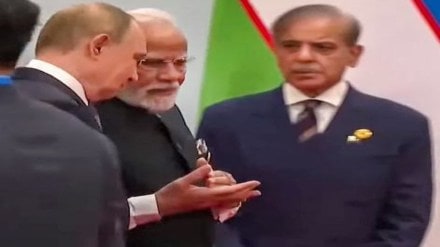Operation Sindoor: Prime Minister Narendra Modi delivered a sharp message on terrorism at the Shanghai Cooperation Council (SCO) Members Session in Tianjin, China, pointedly raising the April Pahalgam terror attack while Pakistani Prime Minister Shehbaz Sharif sat in the same room. Modi, without naming Pakistan, underscored how certain countries openly back terrorism, calling it “an insult to humanity”.
“India has been bearing the brunt of terrorism for the last four decades. Recently, we saw the worst side of terrorism in Pahalgam. I express my gratitude to the friendly countries that stood with us in this hour of grief,” Modi said.
Pahalgam attack and Operation Sindoor
The Pahalgam attack on 22 April 2025 saw militants target Hindu tourists in Baisaran Valley, Jammu and Kashmir, killing 26 civilians. The Resistance Front linked to Lashkar-e-Taiba, claimed responsibility, citing demographic change in Kashmir.
In response, India launched Operation Sindoor on 7 May, striking nine terror camps of Lashkar-e-Taiba, Jaish-e-Mohammed and Hizbul Mujahideen across Pakistani Punjab and Pakistan-occupied Kashmir. The precision strikes, involving both air and ground operations, triggered a brief military escalation with Pakistan before a ceasefire on 10 May. The operation has since become a defining marker of India’s “new normal” in counter-terror policy.
No double standards on terror: PM Modi
Modi pressed SCO members to adopt a consistent approach towards terrorism, rejecting what he described as selective silence. “Security, peace and stability are the basis of development. Terrorism, separatism and extremism are major challenges to this path. No country, no society, no citizen can consider themselves safe from it,” he told the gathering.
He reminded the SCO that India had long emphasised unity in the fight against terrorism, including its role in the Joint Information Operation against Al Qaeda and its efforts to curb terror financing. “We have to say clearly and unanimously that no double standards are acceptable on terrorism,” Modi declared.
Despite the heavy focus on terrorism, Modi also welcomed institutional reforms within the SCO. He noted the establishment of four new centres to combat organised crime, drug trafficking and cyber threats, calling it evidence of a “reform-oriented mindset” that aligns with changing global challenges.
Before the Plenary Session, Prime Minister Modi and Russian President Vladimir Putin were seen walking past, pointedly ignoring Pakistan’s Prime Minister Shehbaz Sharif.
The optics of Modi’s remarks were unmissable, with Sharif present in the room as the Indian leader criticised countries that “openly support terrorism”. While Pakistan has denied involvement in the Pahalgam attack, Modi’s speech reinforced India’s stance that Islamabad continues to serve as a safe haven for extremist groups.
In recent months, Modi has hardened his language on Pakistan. During his Independence Day address on 15 August, he declared that India would no longer tolerate “nuclear blackmail” and warned of responses on India’s terms. He also attacked the Indus Waters Treaty as unjust, asserting that “blood and water cannot flow together”.
